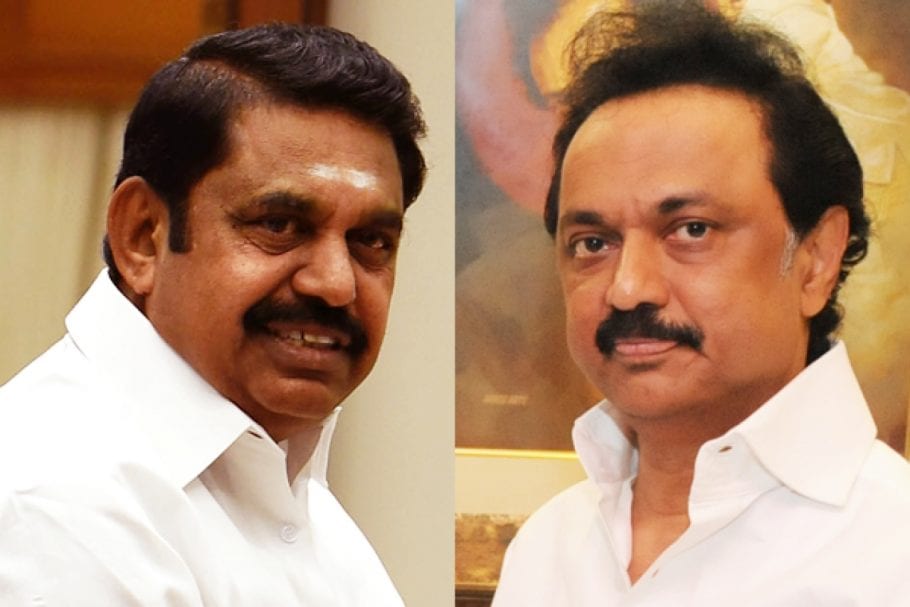
TN’s tottering economy poses an equal challenge for Stalin and EPS
With just two days left to know if DMK president M K Stalin will become the chief minister or Edappadi K Palaniswami (EPS) will get a second chance, the big challenge that lies ahead is the grim financial state of the state of Tamil Nadu.

With just two days left to know if DMK president M K Stalin will become the chief minister or Edappadi K Palaniswami (EPS) will get a second chance, the big challenge that lies ahead is the grim financial state of the state of Tamil Nadu.
The first and foremost challenge for the new government is to control the spread of COVID virus without imposing a complete lockdown, which means more spending for the government in the name of providing financial support.
For the second continuous fiscal, Tamil Nadu, like any other state, is faced with the task of dealing with the pandemic and its monetary implications, which essentially means the government revenue is likely to be lower than what was expected in the budget. Both the Dravidian parties had promised several welfare schemes during the election campaign. How will those promises be fulfilled in the current situation could be anybody’s guess. As a matter of fact, thousands of crores of rupees or nearly 3 to 4% of the state GDP will be needed to fulfill the promises while not scrapping any of the present welfare schemes.
Tamil Nadu presented a budget with nearly 4% fiscal deficit and revenue deficit Rs 42,000 crore for the current financial year, compared to the revised budget for the previous financial year which had expected the revenue deficit to be Rs 65,994 crore. The stress on the government finances is already more as the state has asked several sections of the society to close.
Also read: TN hospitals see queues for Remdesivir as Centre ships just 30% of sought vials
Tamil Nadu and Andhra Pradesh are the two states which depend more on sale of liquor and fuel for their revenue than that of GST. While in Andhra Pradesh, 64% of its revenue comes from outside GST, in Tamil Nadu 61% of its own revenue comes from sales tax, excise, stamp duty and other sources. In contrast, states like Maharashtra, Gujarat or Karnataka have lower dependence on non-GST revenue sources.
The advantage Tamil Nadu and Andhra Pradesh governments have is the leverage to revise the tax rate on commodities and services outside the GST and increase their revenue. Officials, however, are not sure of revising the prices of either liquor or fuel immediately. Revenue from GST is likely to remain the same like last year or increase by a few percentage points as the economy is not working to full capacity.
“In the last few years, we have revised the tax rates and price of liquor frequently; the revenue from fuel is increasing with the rise in prices of petrol and diesel. DMK’s promise of lowering the price of petrol by Rs 4 means loss of several crores of rupees a year,” said a senior government official.
Also read: TN orders 1.5 cr COVID shots to boost vaccination drive beginning May 1
Thus for the new government, the revenue from various sources will remain the same while the expenditure on controlling COVID alone will increase several times, which will have a bearing on expenditure on creating new infrastructure.
There are the advantages and disadvantages for Tamil Nadu and Andhra Pradesh due to their dependence on non-GST revenue, said Prof N R Bhanumurthy of the New Delhi-based National Institute of Public Finance and Policy.
Asked whether there will be additional burden for consumers, Bhanumurthy said it depends on what the government spends the money on. “There is a tax principle which says there must be equality for the consumers which means the tax burden must be high for those who can bear the burden and for others it must be less. Similarly, the tax revenue must be spent on infrastructure which will increase the standard of living. If the money is spent on waiving of loans then it is not equality,” said Bhanumurthy.


